Subscribe to ShahidulNews
![]()
Awards Ceremony
Award ceremony Invitation card
Learning Rights to Make a Difference
Human Rights Training for Journalists in Bangladesh
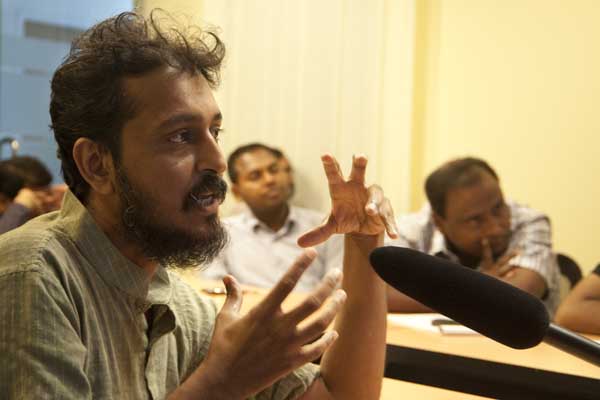
Drik and INTERNEWS network request the pleasure of your company at the Awards Ceremony of ?Learning Rights to Make a Difference? a human rights training for journalists in Bangladesh on Thursday 11 August, 2011 at 5:00 pm at Drik Gallery, Dhaka.
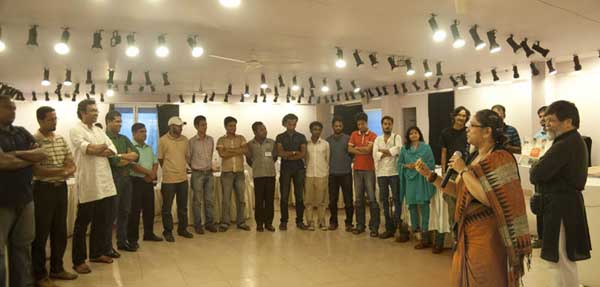
Participating organisations:?Daily Shokaler Khobor,?Daily Sun,?Prothom Alo,?The Independent,?Independent Television,Diganta Television,?Odhikar,?New Age,?The New Nation,?The Daily Ittefaq,?Dhaka Courier,?UNB,?BLAST,?Daily Inquilab,ASK,?Boishakhi TV, BNHRC
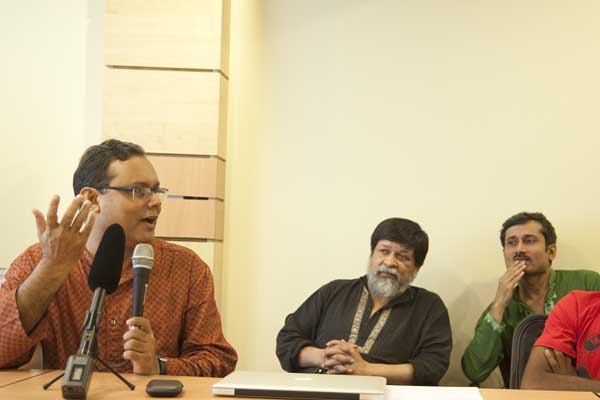
The event will be live-streamed on Drik TV
Chief Guest
Dr. Mizanur Rahman
Chairman, National Human Rights Commission, Bangladesh
Guest of Honour
Mr. Nurul Kabir
Editor, New Age
Selected work of the 17 mainstream journalists who participated in the human rights training course will be presented at this event.
Programme
Drik Gallery, Dhaka ? 11 August 2011 ? Thursday
5:00 pm (GMT +6): Audiovisual Documentation of ?Learning Rights to Make a Difference?
5:05 pm: Welcome by Shahidul Alam
5:15 pm: Presentation of Electronic Report
5:20 pm: Speech by participant (electronic)
5:25 pm: Speech by participant (print)
5:30 pm: Speech by participant (photography)
5:35 pm: Speech by Guest of Honour
5:45 pm: Speech by Chief Guest
5:55 pm: Awards Presentation
6:20 pm: Vote of Thanks by Shahidul Alam
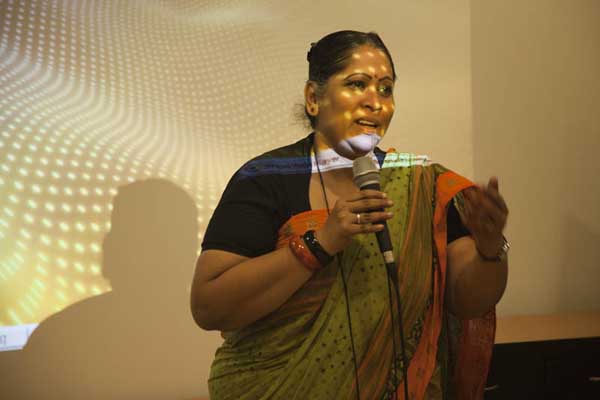
Journalists play an important role as both, providers of information to the public and as a resource for human rights defenders demanding accountability amongst all those who wield power in the public and private domain. Shahidul Alam, Managing Director of Drik at the opening address of the training course said, ?With Bangladesh gaining geopolitical importance, many forces are at play and human rights violations have dramatically escalated with perpetrators operating with impunity. Trained journalists will play a vital role in challenging the abuse of power.?
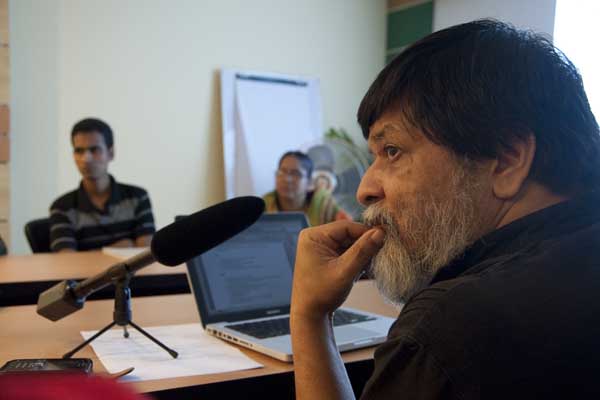
Journalists? right to information and the right to report are the lifeblood of their profession. However, reporting on human rights issues that plague any country is a formidable task for many. The journalists often come under threats and unwarranted arrests leading to abuse by the very authorities that have been elected to provide and protect their human rights.
Drik as a premier visual media communication provider and an organisation committed to social justice, has always aspired to make Bangladesh a country where people can exercise their right to express dissent peacefully, where information will flow freely and where knowledge and skills needed for individuals to attain their full potential are made available.
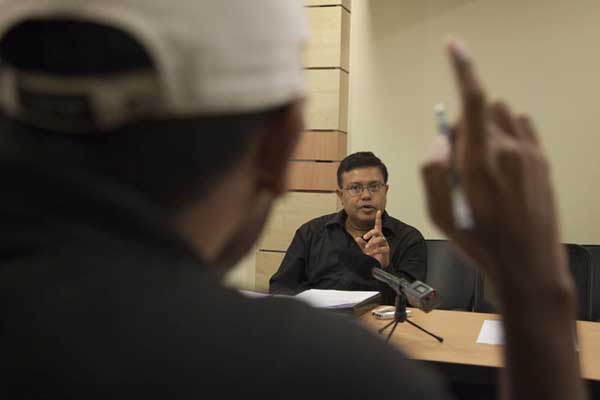
The Learning Rights to Make a Difference, human rights training was thus formulated in partnership with Internews Network to train Bangladeshi journalists to learn new skills and examine in depth the special role accurate, fair and professional reporting and analysis play, in upholding human rights and supporting the peaceful resistance to human rights abuses.
The first part of the course from 19-21 July was instructional which used creative, interactive teaching methods, including presentations and discussion by guest lecturers and exchanges with human rights defenders, activists as well as victims. During the second part of the programme the participants were assigned to report on human rights issues under the supervision of trainers and mentors. The final part of the training was a review programme on 8-9 August where the assignments were openly evaluated by the trainers, mentors and the participants themselves.

It is expected that the training will help the journalists contribute towards greater transparency and accountability leading to a more participatory democracy where rights of all citizens are respected.

2 thoughts on “Learning Rights to Make a Difference”